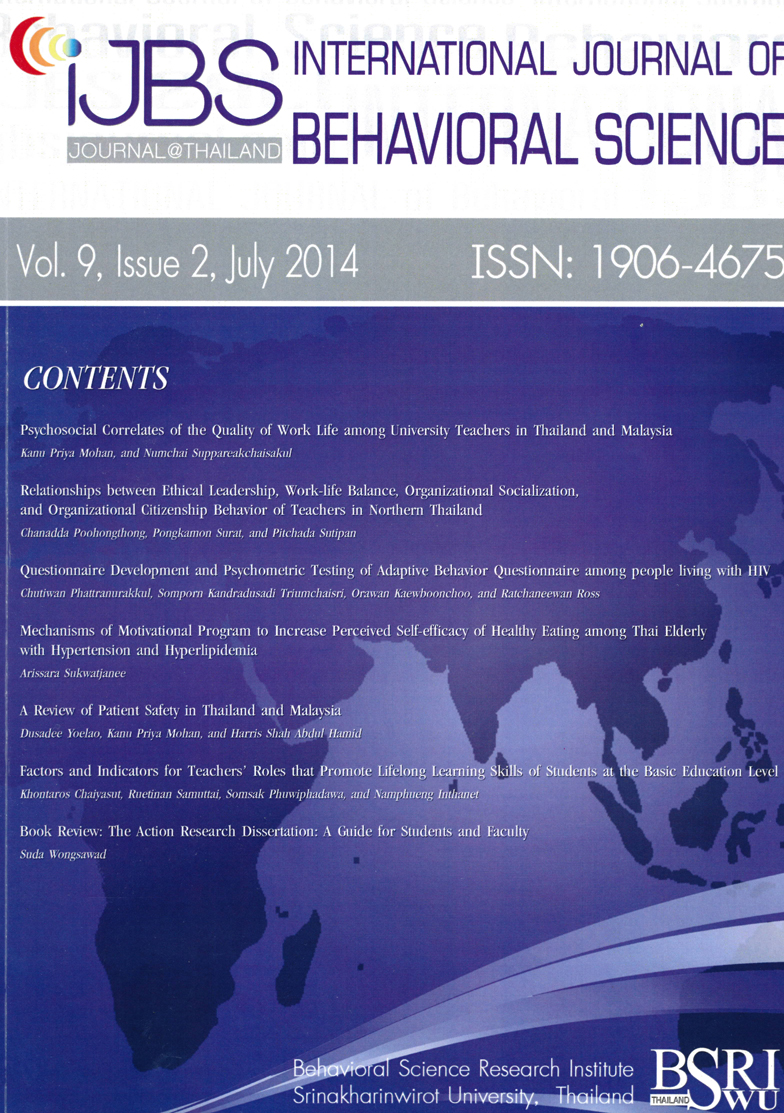The Effects of the Parent Training Program for Obesity Reduction on Anthropometric Measures of School-age Children
Main Article Content
Abstract
The purposes of the study were to develop and evaluate theeffectiveness of the Parent Training Program for Obesity Reduction(PTPOR) on anthropometric measures of school-aged children inBangkok, Thailand. Evidence-Based Practice (EBP) technique wasused to conduct the program. The PTPOR is a randomized controltrial design. Participants were school-aged overweight or obesechildren, and their parents. One hundred and one parent-child dyadswere recruited and randomly assigned into the PTPOR (N = 30),Educational Intervention or EI (N = 32), and control group (N = 39).The parents in the PTPOR group participated in eight weeks oftraining including an educational session, a cooking session, aerobicexercise training, 2-time group discussion sessions, and 4-timestelephoned counseling sessions. The Repeated Measure ANCOVAwas used to analyze data. The results revealed that the outcomes ofthe PTPOR group were better than the EI and the control groups at1st, 8th, and 32nd weeks after finishing the program such as child BMIpercentile, F(2,97) = 10.54, p = .00, waist circumference (F(2,97) = 7.56,p = .00), and body fat percentage (F(2,97) = 6.78, p = .00). The resultssuggest that nurses and health care providers should apply thePTPOR for weight control and for the promotion of a healthy lifestyleamong overweight and obese children.
Keywords: parental training program for obesity reduction, anthropometricmeasures, school-aged children


